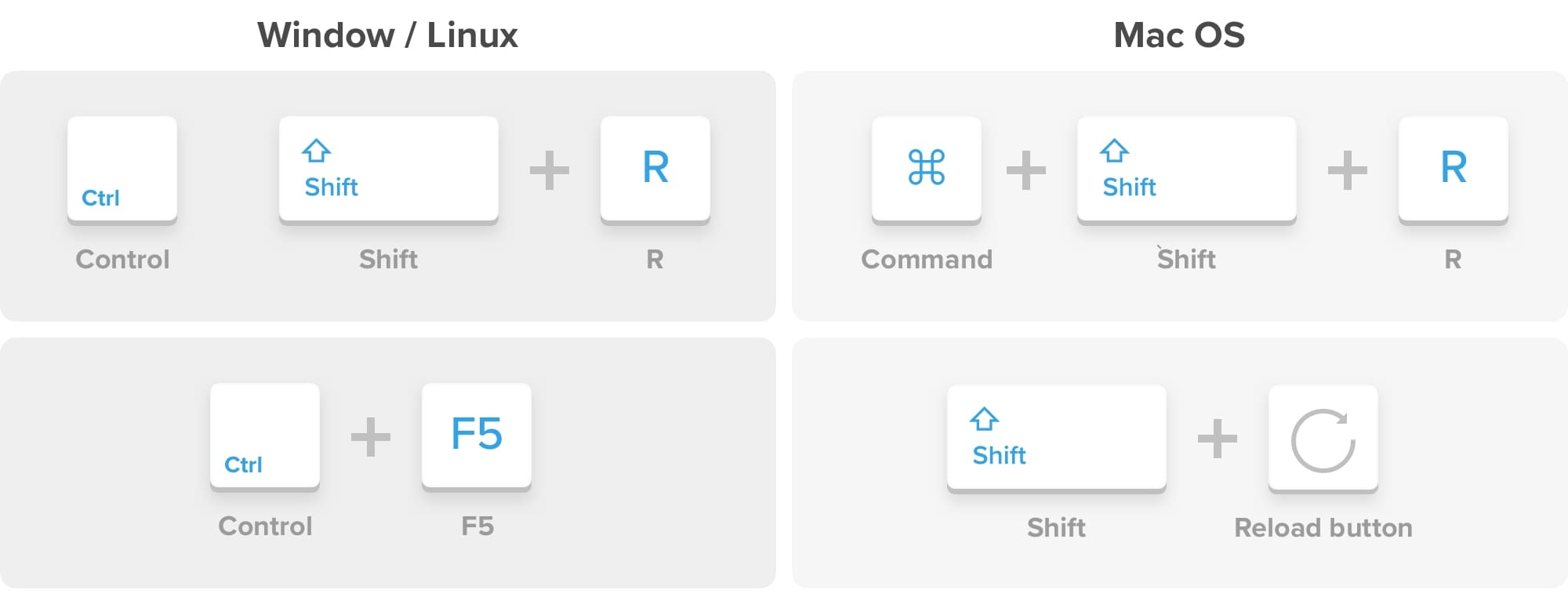

Click the "Tools" menu then select "Delete Browsing History".To completely clear the cache in Internet Explorer 8: Once finished, the notification bar appears at the bottom of the screen, stating that the selected browsing history has been deleted. Internet Explorer will now silently delete the items you have chosen.(If Wikipedia is in your list of favorites, you may need to turn off the "Preserve Favorites website data" at the top of the dialog box.) Select "Temporary Internet Files" at the top, and click "Delete".Click "Tools" (the Gear-shaped button on the top-right section of the browser), point to "Safety" and click "Delete Browsing History…" (keyboard shortcut: Ctrl+ ⇧ Shift+ Del).To completely clear the cache in Internet Explorer 9 and later versions: Tick only the box: "Cached data and files" Navigate to "Settings", "Clear browsing data" and then "Choose what to clear".
REFRESH FIREFOX BROWSER CACHE DOWNLOAD
Browser extensions are available for download that force the cache to be disabled at all times.Ĭlick the ellipsis in the upper right-hand corner. Note: This method only works if the developer console remains open.

Hold the Ctrl key and press the F5 key.Hold both the ⌘ Cmd and ⇧ Shift keys and press the R key.Hold the ⇧ Shift key and click the Reload button on the navigation toolbar.Hold the Ctrl key and click the Reload button on the navigation toolbar.Hold the Ctrl key and the ⇧ Shift key, then press the R key.Hold the ⇧ Shift key and press the F5 key.

REFRESH FIREFOX BROWSER CACHE WINDOWS
On Windows and Linux, use one of the following: In unusual circumstances, it may be worth clearing the entire cache (of your local browser). If you are editing templates, you may need to wait a few minutes before bypassing your browser cache in order to see the change in a page with the transcluded template. If problems persist, report them at Wikipedia:Village pump (technical). If this is not enough, you can try performing a "purge" of Wikipedia's server cache (see instructions below). In most cases you can use the simple instructions shown to the right, or see the complete browser-specific instructions below. When you encounter strange behavior, first try bypassing your cache. This is sometimes referred to as a "hard refresh", "cache refresh", or "uncached reload". the browser insists on showing out-of-date content) making it necessary to bypass the cache, thus forcing your browser to re-download a web page's complete, up-to-date content. Occasionally this caching scheme goes awry (e.g. To speed things up and conserve communications bandwidth, browsers attempt to keep local copies of pages, images, and other content you've visited, so that it need not be downloaded again later. Hold down both ⌘ Cmd+ ⇧ Shift and press R.Hold down ⇧ Shift and click the Reload toolbar button.Bypassing your cache is simple, safe, and causes no permanent changes. It is also required after installing user scripts. This page in a nutshell: Bypassing your cache means forcing your web browser to re-download a web page from scratch, which can often solve website display glitches.


 0 kommentar(er)
0 kommentar(er)
